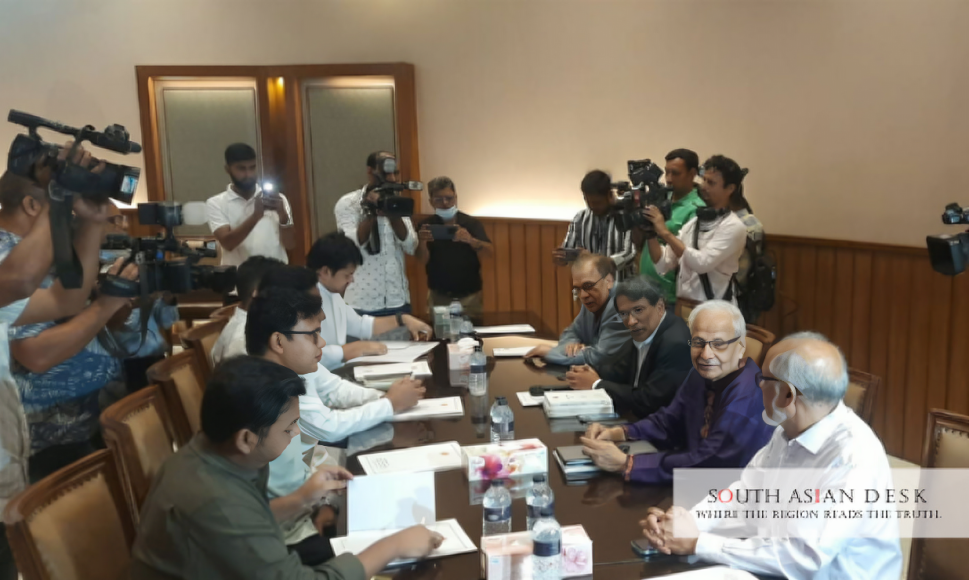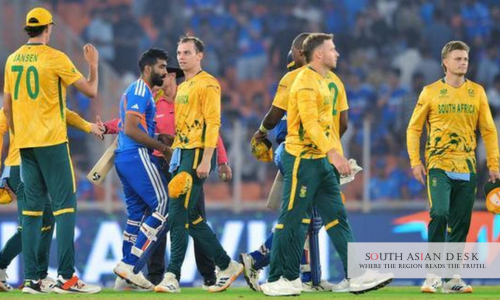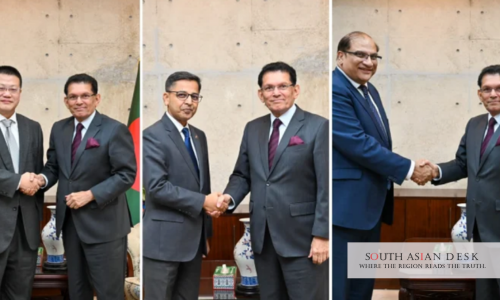A delegation from the National Citizen Party (NCP) convened with the National Consensus Commission (NCC) in Dhaka on Saturday for the NCP NCC meeting Bangladesh October 2025. The talks centred on the July Charter’s legal framework and implementation. Held at the LD Hall of the National Parliament Building from 10:15am, the session lasted one hour. Key figures included NCP Member Secretary Akhtar Hossain and NCC Vice President Professor Dr Ali Riaz. This exchange highlights deepening divides over post-uprising reforms.
National Citizen Party Consensus Commission Talks Advance Reforms
The NCP NCC meeting Bangladesh October 2025 marked a pivotal step in Bangladesh’s transitional politics. Formed after the July 2024 uprising that ousted the previous government, the NCP represents youth activists demanding sweeping changes. The NCC, established in February 2025 by the interim administration under Chief Adviser Muhammad Yunus, aims to forge agreement on electoral and constitutional reforms ahead of polls.
Participants from the NCP included Joint Conveners Sarowar Tushar, Javed Rasine, Khaled Saifullah, and Joint Member Secretary Zahirul Islam Musa. The NCC side featured Professor Dr Ali Riaz alongside other commissioners. Discussions focused on the July Charter, a document outlining principles for a “new Bangladesh” including anti-corruption measures and power devolution.
Akhtar Hossain, NCP Member Secretary, led the delegation. Post-meeting, he emphasised the party’s commitment to reforms. “While many had sought to prioritise electoral politics, the NCP’s steadfast attention to structural and constitutional reforms ensured that the nation’s broader interests were not sidelined,” Hossain stated at a subsequent coordination meeting on 24 October.
This stance reflects the NCP’s broader strategy. Formed in late 2024, the party has grown rapidly among students and professionals. It boycotted the initial July Charter signing in October, citing lack of legal backing. Hossain added: “Journalists approached us months ago asking about our position in electoral politics. We always maintained that if the electoral discussions were made the main focus prematurely, the reform agenda would be pushed aside and Bangladesh would not receive the development it deserves.”
NCP Demands Referendum July Charter Implementation
Central to the National Citizen Party Consensus Commission talks was the NCP’s call for a referendum on the July Charter. The party insists on a public vote to embed its provisions into the constitution. This demand aligns with earlier positions voiced by NCP leaders.
“All political parties eventually agreed on providing legal basis for a public referendum to grant structural powers to the next parliament, thereby incorporating fundamental constitutional reforms,” Hossain noted. He Credited NCP advocacy for keeping the charter prominent. “It is due to the NCP’s demands that the July Charter remains relevant and visible to the public. Without our intervention, its implementation might have been obscured.”
The July Charter emerged from the 2024 student-led protests. It proposes reforms in judiciary, elections, and administration. However, without constitutional status, critics term it symbolic. The NCP seeks to avoid past pitfalls. “Any attempt to reduce the charter to a mere symbolic document, as had happened in the past, would compel the NCP to mobilise the public and announce subsequent steps,” Hossain warned.
Senior NCP Joint Convener Ariful Islam Adib echoed this urgency. Speaking to reporters on 25 October, Adib said: “NCP is engaged in informal discussions at various levels regarding the legal basis of the July Charter. Once the matter is finalised, the party’s election activities will begin.” He indicated optimism for resolution by the NCC’s 31 October deadline.
The referendum proposal gained traction after similar demands from allies like Jamaat-e-Islami. On 22 October, both parties met Yunus, urging constitutional orders for the charter. This convergence pressures the interim government to act swiftly.
Why the NCP NCC Meeting Bangladesh October 2025 Matters Regionally
Bangladesh’s political flux reverberates across South Asia. The NCP NCC meeting Bangladesh October 2025 exposes fault lines in the post-Hasina era. With elections eyed for early 2026, delays in reforms risk unrest. Youth-driven parties like NCP challenge traditional powers, potentially stabilising or destabilising the neighbourhood.
India watches closely, given border dynamics and trade ties worth USD 16 billion annually. A referendum could legitimise changes, boosting investor confidence. Pakistan and others eye the model for their transitions. Failure here might embolden hardliners, straining SAARC cohesion.
The nut of this story lies in consensus-building. The NCC has consulted over 20 parties and experts since inception. Its report, due by month’s end, will guide government action. NCP’s insistence elevates the July Charter from rhetoric to reality, fostering inclusive governance.
Background: July Uprising and Charter’s Genesis
The July Charter stems from the 2024 quota protests that toppled Sheikh Hasina’s regime. Students demanded an end to corruption and inequality. The uprising claimed over 200 lives, per official tallies. Interim leaders drafted the charter in September 2024, signed by 18 parties on 16 October minus NCP.
NCP Convener Nahid Islam, a protest leader, rejected the event. On 16 October, he declared: “Signing the July Charter without a legal foundation would be a mere formality.” This set the stage for ongoing National Citizen Party Consensus Commission talks.
The NCC, chaired by Muhammad Habibur Rahman, comprises academics and jurists. It held expert sessions on 22 October, debating implementation modalities. Vice President Ali Riaz, a US-based scholar, brings global perspectives to local challenges.
NCP’s rise is notable. From protest tents to party headquarters, it boasts 50,000 members nationwide. Hossain highlighted this growth: “While the NCP is a relatively young political party, public trust in the party has grown due to its principled stance.”
What’s Next for Reforms
Separate briefings follow the NCP NCC meeting Bangladesh October 2025. NCP and NCC plan media interactions by Monday. The commission’s tenure ends 31 October, forcing a report submission.
Adib foresees signing if conditions met. “We expect to sign the charter before 31 October,” he said. NCP eyes independent contesting or third alliances, finalising candidates in November.
Government sources hint at administrative reshuffles for fair polls. Yunus assured neutrality on 22 October. Street programmes loom if demands unmet, per NCP plans announced 18 October.
This trajectory tests Bangladesh’s resilience. The NCP NCC meeting could cement or fracture the reform pact.
The forward path hinges on action. As Bangladesh hurtles towards elections, the primary keyword NCP NCC meeting Bangladesh October 2025 symbolises hope for accountable democracy.
Published in SouthAsianDesk, October 25th, 2025
Follow SouthAsianDesk on X, Instagram, and Facebook for insights on business and current affairs from across South Asia.






